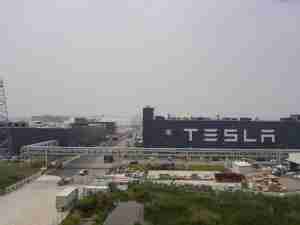Swiss solar panel maker Meyer Burger Technology AG slumped as much as 47%, after saying it may shut one of Europe’s largest production sites and switch its focus to the US.
Solar panel prices in Europe plunged last year after Chinese products flooded the market. That “dumping” means there is “no fair market” in Europe, Chief Executive Officer Gunter Erfurt said on a conference call. Trade restrictions imposed by India and a US import ban on Chinese panels suspected of being manufactured with forced labor saw modules redirected to the region.
Meyer Burger said it will make a final decision on the shutdown of the unit in Freiberg, Germany, in the second half of February. The plant, which employs about 500 people, could close as early as April. At the same time, it will ramp-up operations in the US.
Meyer Burger projects that it will require financing of about CHF450 million ($522 million) until it becomes cash-flow positive during 2025. It anticipates a 2023 loss before interest, taxes and depreciation and amortization of at least CHF126 million. The company is considering a rights issue, private placements and other forms of equity-based financing.
The company’s shares were down 28% as of 10:07 a.m. in Zurich trading, after earlier posting a record intraday drop.
“Meyer Burger shares are a high-risk investment where a total loss cannot be ruled out,” Bernd Laux, an analyst at Zuercher Kantonalbank, said in a note.
Erfurt expects to start the ramp up of a solar module production site in Goodyear in the US in the second quarter of 2024. The Inflation Reduction Act has made the US “the most attractive market” for local solar manufacturers, Meyer Burger said.
“They make sure that companies can set up quickly,” the CEO said on the call. “We are encouraged to grow very quickly. The customers of these products are also supported.”
The company is in talks with the German economy ministry to receive export financing support for its US investment.
The European Union wants to prioritize home-grown clean tech, but less than 2% of demand is met by solar products from the region, with about 90% of components coming from China. Germany installed more solar panels than any other country in the EU.
The industry is waiting for support from policymakers similar to the EU Commission’s package for the struggling wind sector.
A “resiliency bonus” of €50 million is being discussed in Germany to allow for more qualitative criteria in upcoming solar auctions. The government in Berlin is set to decide a set of measures to help the solar industry on Feb. 21.
Last week, the European Commission approved a €902 million aid package from the German government to Swedish electric vehicle battery producer Northvolt AB to build a plant in the nation under the bloc’s relaxed state aid rules.







